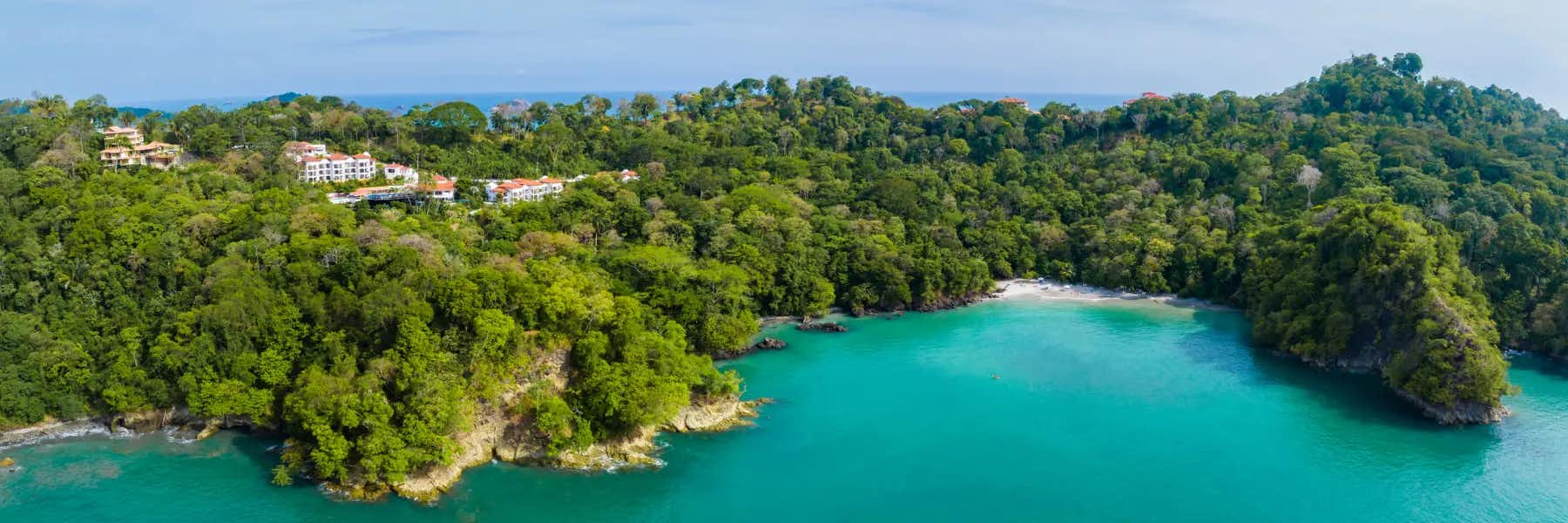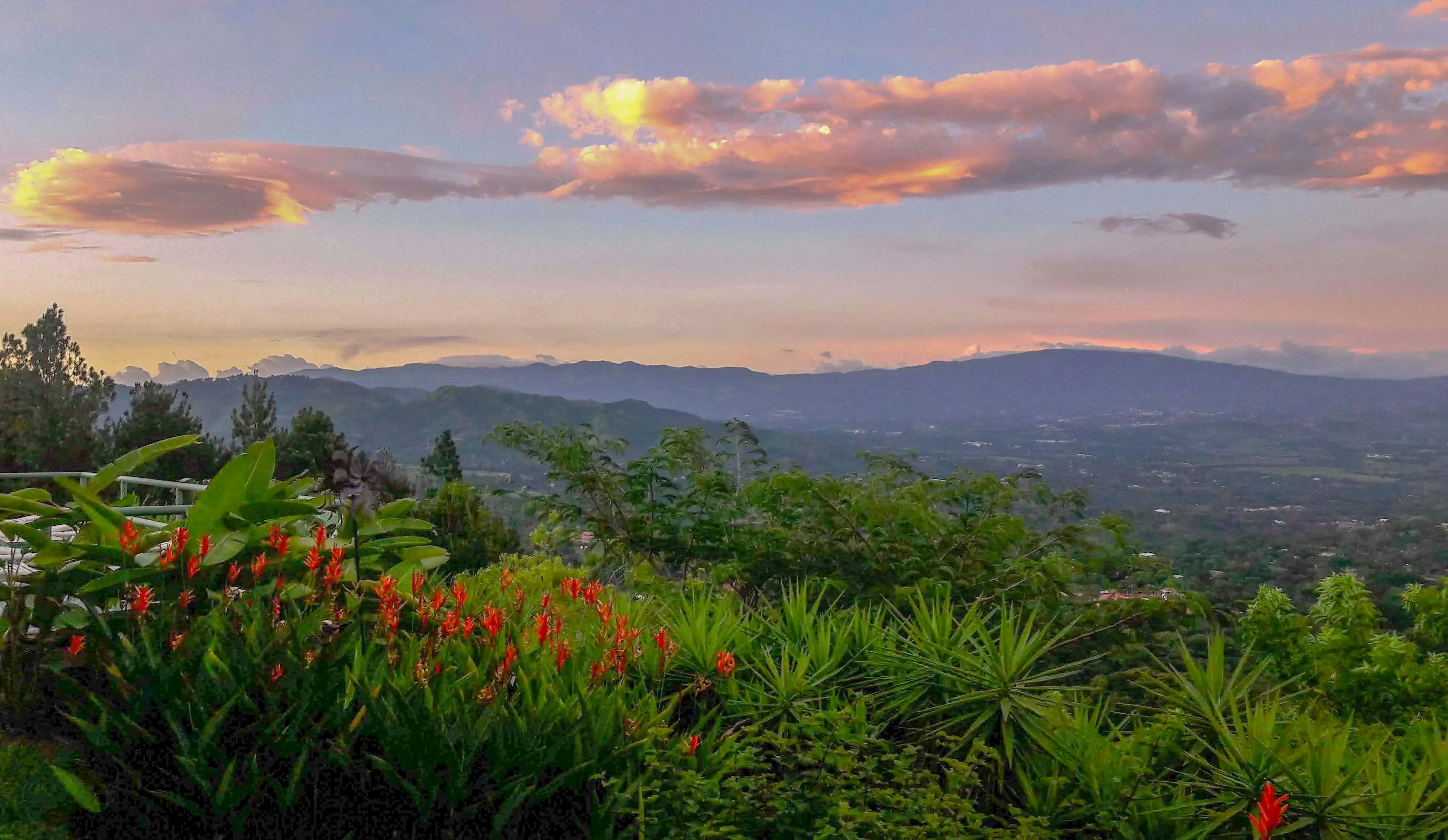By almost any standard, Costa Rica has some of the best healthcare in Latin America. There are two systems, both of which expats can access: the government-run universal healthcare system, Caja Costarricense de Seguro Social, known as Caja, and the private system. Both health systems are constantly being upgraded—new hospitals, new equipment, and improvements in staff training.
Despite the advancements, costs are low in comparison to those in the U.S. and even some European countries. Healthcare costs are about a third to a fifth of what you’d pay in the U.S., depending on the treatment. Many doctors, especially in private practice, speak English and have received training in Europe, Canada, or the U.S. Prescription drugs are also less expensive. And many drugs which require a prescription in North America are available for purchase over the counter in Costa Rica.
Private healthcare is also available, which is affordable and high quality. There are three large, private hospitals that most expatriates use: CIMA hospital in Escazú, Clínica Bíblica in San José, and Hospital La Católica in San José-Guadalupe. All these facilities are in and around the capital of the country, San José.
There is also a full-service private hospital located in downtown Liberia called San Rafael Arcángel, serving the Guanacaste province and the nearby beaches such as Playas del Coco, Flamingo, and Tamarindo—home to many expats in the region.
In this private system, you can pay cash out-of-pocket or use insurance, including some policies from the U.S. and Europe, international policies, and insurance from Costa Rican companies. Health insurance from the Costa Rican government monopoly Instituto de Seguro Nacional (INS), for example, is available to legal residents, affiliated with doctors, hospitals, labs, and pharmacies in the private sector. Familiar names such as Blue Cross/Blue Shield, BMI/Aetna, and Cigna also offer private policies in Costa Rica. Even if you pay cash, costs are low. Doctors, for instance, rarely charge more than $65 to $85 a visit, even for house calls. And visits to see a specialist, of which there are many in the country, will run you $90 to $110. Tests like ultrasounds are $75. And even major surgeries are half to a quarter of what they’d be in the U.S.
Statistics from the World Health Organization frequently place Costa Rica in the top country rankings in the world for long life expectancy. Arguably, one reason for this is the slower pace of living in Costa Rica. And, of course, the healthy, fresh, non-preservative-laden foods found there, and the welcoming tropical climate. Costa Rica just seems to be a healthy place to live. In fact, the Nicoya Peninsula region, on the northern Pacific coast, has been found to be one of the world’s Blue Zones. National Geographic researchers have discovered that the residents there live longer on average thanks to a combination of climate, diet, and other factors.
Get Your Free Costa Rica Report Here
Get Your Free Costa Rica Report Here
Learn more about Costa Rica and other countries in our daily postcard e-letter. Simply enter your email address below and we’ll send you a FREE REPORT - Explore the Old World in Laidback Costa Rica.
By submitting your email address, you will receive a free subscription to IL Postcards and special offers from International Living and our affiliates. You can unsubscribe at any time, and we encourage you to read more about our Privacy Policy.
Costa Rica’s Government-Run Healthcare System
With a government-sponsored network of hospitals and clinics throughout the country, the Caja Costarricense de Seguro Social (CCSS) has primary responsibility for providing low-cost healthcare services to the Costa Rican populace.
The Caja operates 30 public hospitals (ten general, seven regional, and 13 peripheral). Most of the larger hospitals are located in and around the nation’s capital, San José–since that is where the majority of the country’s population is located. And they operate 250 clinics across the country, plus 1,000 smaller “attention units” called EBAIS to cover all of the rural areas. Ensuring that those who live more remotely will have access to some sort of healthcare nearby.
Although sometimes overburdened, this system has worked well for Costa Ricans for the past 80 years. Foreigners living in Costa Rica—legal residents only in one of the residency programs (Pensionado, Rentista, or Inversionista)—can join the CCSS and have the option to receive national healthcare (everything from check-ups to prescription drugs to major surgeries) by paying a small monthly fee–based on income. Tourists and visitors can use Caja facilities only in emergencies.
It is mandatory for residency applicants to become members of Caja. The monthly payment is 7% to 11% of the applicant’s monthly income. A dependent spouse is also covered and able to join Caja under that payment.
Costa Rica’s Private Healthcare System
Many of the country’s highly trained physicians and some dentists work in the mornings for the CCSS and operate their own offices and clinics in the afternoons and evenings. While private healthcare in Costa Rica is more expensive than that offered by the same doctors and surgeons through the CCSS, the price is still far below that of the average office visit in the U.S. Cost for continued treatments for diagnosed problems will vary, but will almost always be considerably less than comparable treatment in the U.S. Dental work, too, is provided at a much lower cost than in the U.S.—prompting a phenomenon known as “medical tourism.” Knee replacements, hip replacements, and cosmetic surgeries are some of the most popular procedures done in Costa Rica. On the dental side, implants and teeth whitening are popular. Many patients find that the entire cost of the trip to Costa Rica (including a vacation before or after treatment), including the procedure, is much cheaper than having it done in the U.S.
The previously mentioned private hospitals, Clínica Bíblica, CIMA hospital, and Hospital La Católica, where many CCSS doctors practice in the afternoons and evenings, offer first-class, ultra-modern services. Affiliated with U.S. hospitals and certified by Joint Commission International, these three private providers have costs somewhat higher than the public providers but still considerably below anything found in the U.S.
There are a good number of private clinics around the country serving expats in the popular beach locations and the central highlands further from San Jose. Most of the private pharmacies also have a licensed medical doctor. Some clinics just offer emergency services, but others have a number of doctors on staff and can perform x-rays, bloodwork, ambulatory service, and other wellness care.
Many expats elect to use a mix of public and private care due to the wait times for certain procedures and treatments in the public system. For example, if a Caja doctor requests an ultrasound but the Caja testing facility has a wait time of a couple of weeks, the patient can get the test done at a private clinic and bring the results back to the Cajadoctor. Also, many private doctors who also work in the public system can write prescriptions for Caja pharmacies so there’s no cost to the patient.
Cosmetic Surgery in Costa Rica
A full range of cosmetic and reconstructive procedures are available in several modern clinics. With the addition of contemporary laser technology, the ability of Costa Rica’s plastic and cosmetic surgeons to provide world-class services has been enhanced. Prices are sometimes 50% lower than in the United States, but it is important to note that each case is different, and prices are quoted on an individual basis after a consultation. It is always recommended to read all independent reviews and follow up with previous patients to be sure you have an accurate expectation of results.
Dental Procedures in Costa Rica
From simple fillings to complicated multiple implants and periodontal work, Costa Rican dentists are as qualified and skilled as dentists anywhere—and the prices are far lower. This is another growing area of health tourism—foreign patients seeking dental work arrive in Costa Rica in greater numbers every year. Laboratory work, too, is much cheaper in Costa Rica, and materials used are all FDA-approved and imported from the U.S.
Get Your Free Costa Rica Report Here
Get Your Free Costa Rica Report Here
Learn more about Costa Rica and other countries in our daily postcard e-letter. Simply enter your email address below and we’ll send you a FREE REPORT - Explore the Old World in Laidback Costa Rica.
By submitting your email address, you will receive a free subscription to IL Postcards and special offers from International Living and our affiliates. You can unsubscribe at any time, and we encourage you to read more about our Privacy Policy.
Frequently Asked Questions
How Much is Healthcare in Costa Rica?
If you are a legal resident you will be required to join the national healthcare system. As outlined above, that cost typically runs 7% to 11% of your stated income on your residency application. For example, if you receive $1,200 per month in Social Security from the U.S., and you and your dependent spouse have applied jointly, your monthly Caja payment will be approximately $84 to $132 per month for both of you. To apply for residency jointly, you only need to claim one Social Security payment as your income, as long as it is $1,000 or more.
If you choose to buy a private policy the premiums vary widely, based on chosen deductibles, age, current health condition, and the number of people covered on the policy. Some private companies will not cover seniors above a certain age or any pre-existing conditions. This is the most expensive option however it costs considerably less than buying a similar policy in the U.S. As an example, a 2021 quote from BMI/Aetna (Best Meridian Insurance based in Miami)—including emergency care up to 60-day consecutive periods outside of Costa Rica or a total of six months outside the country per calendar year— for a healthy individual aged 59 with a $10,000 deductible was quoted at $2,600 annually. An estimated quote for a similar policy in the U.S. is $6,850 annually.
What is Healthcare Like for Expats in Costa Rica?
Neither Medicare systems from the U.S. or Canada cover any healthcare services in Costa Rica.
Expats who have their temporary or permanent residency status can use the national healthcare hospitals and clinics throughout the country run by the Caja. For those who do not have residency, paying out of pocket or purchasing a private healthcare policy is an option many choose. There are several expat-friendly and English-speaking private insurance agents in Costa Rica who sell a number of different policies.
There are now many doctors, hospitals, and clinics that have begun taking TriCare Overseas, the U.S. retired military insurance. Always check in advance before setting any appointments.
For those who are exploring or researching Costa Rica for a short term—less than one year—travel insurance is a good option. These policies can be bought online. Be sure to read the fine print, as many policies do not cover certain things like extreme sports or pandemics.
Lastly, there is a discounted program in Costa Rica available called Medismart. With this option, you join the network and pay a monthly fee under $14 (at the time of publishing) and you have access to private services through in-network doctors and clinics. As a member, you receive deep discounts on services and procedures, some as much as 80%. There are no restrictions.
Is Healthcare Free in Costa Rica?
“Free” is a relative term. Yes, the Caja Costarricense de Seguro Social (CCSS or simply the Caja) healthcare system could be considered free, however, you do have to make a monthly payment to be able to access this universal healthcare. If you are employed in Costa Rica, your payment is made by your employer from your paycheck. If you are self-employed in Costa Rica or retired you pay into the system under the independent worker coverage plan called asegurado voluntario. However, your visits to public clinics and hospitals, as well as all procedures are “free.” There are no copays.
Get Your Free Costa Rica Report Here
Get Your Free Costa Rica Report Here
Learn more about Costa Rica and other countries in our daily postcard e-letter. Simply enter your email address below and we’ll send you a FREE REPORT - Explore the Old World in Laidback Costa Rica.
By submitting your email address, you will receive a free subscription to IL Postcards and special offers from International Living and our affiliates. You can unsubscribe at any time, and we encourage you to read more about our Privacy Policy.














